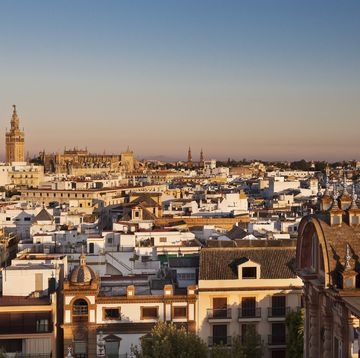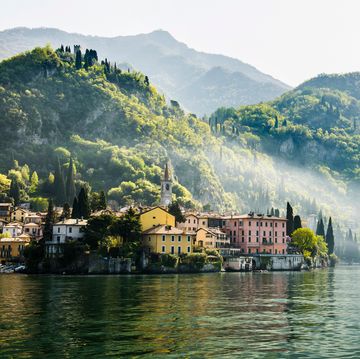Countries appealed to Donald Trump on Friday to join the battle against global warming, with Fiji's prime minister inviting the U.S. president-elect to visit the Pacific island nation for a first-hand look at the impacts of climate change.
Suddenly faced with the possibility that the U.S. could withdraw from the emissions pact adopted in Paris last year, delegates at U.N. climate talks rallied in support of the landmark deal and said they would forge ahead no matter what.
Moroccan Foreign Minister Salaheddine Mezouar, the host of the two-week talks in Marrakech, said the conference's "message to the new American president is simply to say, 'We count on your pragmatism and your spirit of commitment.'"
Trump said during his campaign that he would "cancel" an international agreement aimed at fighting climate change and withdraw American tax dollars from U.N. global warming programs. He's also said that climate change is an idea invented by the Chinese.
More than 190 countries, including the United States, pledged in the Paris Agreement to reduce greenhouse gas emissions blamed for rising temperatures and sea levels, worsening droughts, and heat waves.
In Marrakech, delegates from China to Brazil expressed hope that Trump didn't mean what he said during his campaign. Some appealed to him directly to change his mind about the issue.
"I renew my offer to President-elect Trump to come to Fiji and see the effects of climate change," said the island nation's prime minister, Frank Bainimarama, drawing applause from the conference.
Small island nations are among the strongest advocates for sharp cuts in greenhouse gas emissions because they fear their survival depends on it. Many are already experiencing the effects of climate change, with rising seas eroding their coastlines and intruding into their freshwater supply. In 2014, Kiribati, an island nation in the Pacific under threat from rising oceans, bought a stretch of land about 1,200 miles away in Fiji in case it needs to move its population.
"We would hope not to put everyone on [this] one piece of land, but if it became absolutely necessary, yes, we could do it," President Anote Tong said.
But even coastal areas in the U.S. are experiencing the effects of rising seas. This week, the so-called supermoon inundated areas of Florida, including, according to The New York Times, parts of Ft. Lauderdale known as "the Venice of America," a reference to the Italian city:
The tide swelled on command. Seawater gurgled audibly up through manhole covers and seeped from the grass. Under a sunny sky, the water drowned docks and slid over low sea walls. By 8:15 a.m., peak tide, this street in the Las Olas Isles neighborhood was inundated, just like the Venice across the pond.
In Miami, a photo that was shared widely on social media shows a small octopus trapped inside a flooded parking garage. A biology professor confirmed to the Miami Herald that the video appears to be real and said residents should expect to see more strange creatures wash up with the rising seas.
[facebook ]https://www.facebook.com/photo.php?fbid=10210742358424895&set=pcb.10210742406306092&type=3&theater[/facebook]
At the Marrakech conference, German Environment Minister Barbara Hendricks said attendees had "demonstrated that the spirit of Paris is alive and stronger than ever."
With mostly procedural issues under negotiation, countries announced various partnerships and initiatives to show their commitment to a clean-energy transition.
In a symbolic move, more than 40 vulnerable countries including small island nations and drought-hit African countries, declared they would pursue 100 percent renewable energy "as rapidly as possible."
Many of them would require support from richer countries to switch to renewable energy sources like wind and solar power. Some, including the Philippines and Bangladesh, plan to expand coal power, a key source of global warming emissions, to meet their growing energy needs.
Still, the declaration signaled support from even poor countries that previously had said it was up to the West, which historically has polluted the most, to reduce emissions.
"This is a group of countries that are the most vulnerable to climate change, but they are not sitting back and complaining about being vulnerable," Jennifer Morgan of Greenpeace said. "They are acting and they are setting the pace for the type of change that we need to see in our world."














